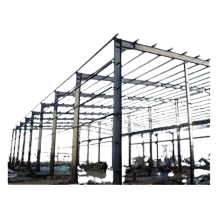Get A Quote
BIS Certification for Structural Steel for Building for Structures with Improved Seismic Resistance IS 15962:2012.

BIS Certification for Structural Steel for Buildings Designed for Enhanced Seismic Resilience IS 15962:2012 guarantees that the structural steel utilized in construction adheres to stringent safety and quality standards, particularly in earthquake-sensitive regions. This certification confirms compliance with IS 15962:2012, thereby bolstering structural integrity and durability. Manufacturers and builders must fulfill these regulatory obligations to ensure safe construction practices.
We offer specialized consultancy for BIS Certification for Structural Steel for Buildings Designed for Enhanced Seismic Resilience IS 15962:2012, facilitating a seamless certification process and adherence to Indian standards.
Introduction
The BIS
Certification for Structural Steel in Compliance with IS 15962:2012 for
Enhanced Seismic Resistance ensures adherence to quality and safety standards
as stipulated under the Steel & Steel Products (Quality Control) Order,
2024. This certification affirms that the structural steel utilized in construction
fulfills essential seismic resistance criteria, thereby improving building
resilience and safety. Securing BIS Certification for Structural Steel in
Compliance with IS 15962:2012 for Enhanced Seismic Resistance is vital for
manufacturers to guarantee regulatory conformity, product reliability, and
acceptance in the market while fostering the advancement of
earthquake-resistant infrastructure in India.
Why is BIS Certification necessary for Structural Steel
for Building for Structures with Improved Seismic Resistance IS 15962:2012?
The BIS
Certification for Structural Steel in Buildings for Enhanced Seismic
Resistance, IS 15962:2012, is vital for ensuring the structural integrity and
safety of constructions, particularly in regions susceptible to seismic activity.
This certification affirms that the steel utilized adheres to rigorous quality
and performance standards, thereby mitigating risks during seismic events. It
enhances the durability, reliability, and compliance with national regulations,
ultimately safeguarding the well-being of occupants. By acquiring BIS
Certification for Structural Steel in Buildings for Enhanced Seismic
Resistance, IS 15962:2012, manufacturers signify their commitment to quality
benchmarks, thereby cultivating trust among builders and regulatory bodies.
Overview of Indian Standard IS 15962:2012
IS 15962:2012 outlines the specifications for structural steel utilized in buildings designed with enhanced seismic resilience. This standard guarantees the material's strength, ductility, and stability when subjected to seismic forces, thereby increasing the safety of structures located in earthquake-prone regions. It encompasses design criteria, material properties, and testing methodologies aimed at improving structural performance.
BIS Certification
for Structural Steel for Buildings with Enhanced Seismic Resilience IS
15962:2012 is crucial for regulatory compliance, ensuring that the steel used
in construction adheres to national safety standards. This certification
ensures quality, longevity, and conformity to seismic performance criteria.
Process for BIS Certification
The BIS certification process for Structural Steel for Building
for Structures with Improved Seismic Resistance IS 15962:2012 involves multiple
steps designed to thoroughly evaluate a product's compliance with the required
standards. Here is a general overview of the certification process:
1. Application Submission:
Manufacturers must submit an application form along with the required
documentation to BIS.
2. Documentation Review: BIS
reviews the submitted documents to ensure completeness and correctness.
3. Factory Inspection: BIS
officials conduct an on-site inspection of the manufacturing facility to assess
the production process and quality control measures.
4. Sample Testing: Product samples
are taken and tested in BIS-approved laboratories to verify compliance with
Indian standards.
5. Certification Grant: Upon
successful completion of the inspection and testing, BIS grants certification,
allowing the manufacturer to use the BIS mark on their products.
Documents Required for BIS Certification
To apply for BIS certification, manufacturers need to submit the following documents:
● Application form
● Manufacturing process details
● Quality control plan
● Test reports from BIS-approved laboratories
● Factory layout and equipment details
● Proof of business registration
● Product specifications and technical details
● Declaration of conformity to Indian standards
Additionally, manufacturers may be required to provide proof of compliance with environmental and safety regulations, depending on the specific type of product being certified.
BIS ISI Mark Certification Costing And Timeline
To Know The Process in Detail, Please Visit:
Under BIS Registration Products ISI and CRS
Conclusion
EVTL India specializes in BIS Certification for Structural Steel for Buildings Designed to Improve Seismic Resistance IS 15962:2012, ensuring adherence to Indian safety and quality standards. This certification is vital for manufacturers and suppliers aiming to deliver robust and earthquake-resistant steel structures. Our expert consultancy enables businesses to navigate the certification process effectively, fulfilling all regulatory requirements and enhancing product reliability. Our team assists with documentation, testing, and approvals, ensuring a seamless certification experience.
By obtaining BIS
Certification for Structural Steel for Buildings Designed to Improve Seismic
Resistance (IS 15962:2012), companies affirm their dedication to structural
safety, thereby gaining market credibility and consumer trust. At EVTL India,
we emphasize regulatory compliance and product excellence, facilitating
efficient certification for businesses. Contact us today to expedite your
certification process and ensure compliance with industry standards, promoting
safety and sustainability in construction.
Free Call Back
Latest News & Update
📅 BIS Critical Component List (CCL) Updates for Solar PV Modules
🕒 BIS Fee Concessions for MSMEs and Startups | EVTL India
📅 Guidelines for Implementation of Essential Requirements for Security of CCTV
🕒 Omnibus Technical Regulation (OTR) Amendment Order, 2025
🕒 Extension of Timeline for Filing Annual Returns by Battery Producers
📅 Extension of Timeline for Filing Quarterly and Annual Returns for E-Waste
🕒 Extension of Concurrent Running Period for IS 302-1: 2008 and IS 302 (Part 1): 2024
🕒 BIS Guidelines for Grant of Licence (GoL) | EVTL India
📅 CPCB Guidance on filing of Application, Fees and more
🕒 CPCB Notification on Labelling of Plastic Packaging
📅 Mandatory Compliance for Input Materials of Steel and Steel Products for Imports
🕒 BIS Guidelines for Scheme-X Certification for OTR-Regulated Products
📅 BIS Upgrades Product Certification License Numbers to 10-Digit Series
🕒 BIS Certification No Longer Mandatory for 14 Chemical & Polymer Categories
Why Choose EVTL INDIA
Expertise in Indian Regulatory Standards
End-to-End Support
Trusted by Top Indian & Global Brands
Fast Processing & Transparent Pricing
Strong Liaison with Indian Authorities
Company Profile














